
Top Tools to Boost Your Content Marketing
You’ve probably heard it before: content is king. That means that companies are increasingly reliant on a solid content marketing strategy to propel their business forward – and this strategy is often based online.
It can be hard for a small business to find its footing in the world of content marketing at first, with so much choice and competition for audiences on the internet. That’s why deploying the right tools to execute your content marketing strategy is a must. Here’s our top pick of the most useful tools to boost your content marketing, from free online stock libraries to powerful all-round content management software.
1. Flyerwiz
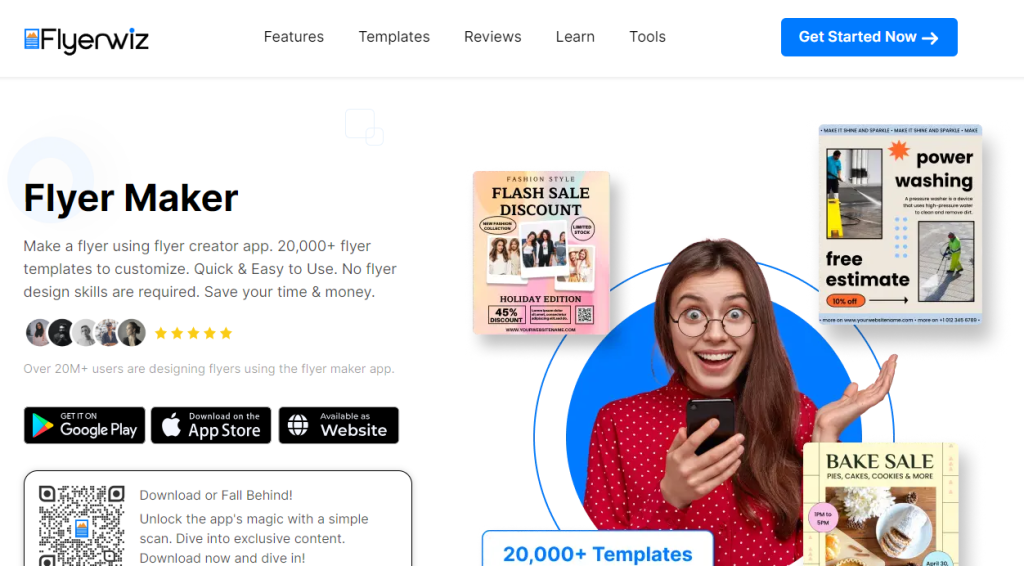
Flyerwiz is a comprehensive online tool designed to simplify the creation of stunning flyers. With its extensive library of customizable flyer templates, users can easily find a starting point for their projects, whether promoting an event, marketing a product, or announcing a sale.
Each template is fully editable, allowing you to tailor colors, fonts, images, and text to fit your specific needs, ensuring a professional and personalized result every time. Flyerwiz’s standout features include a background remover tool for isolating subjects, various filters for enhancing visual appeal, and an image compressor that optimizes images for web and print without compromising quality.
Flyerwiz’s user-friendly interface, rich customization options, and time-saving tools make it an ideal choice for anyone looking to produce high-quality promotional materials. Though if you are looking to use Ai for flyer creation you can also check out Visme.
2. SimilarWeb
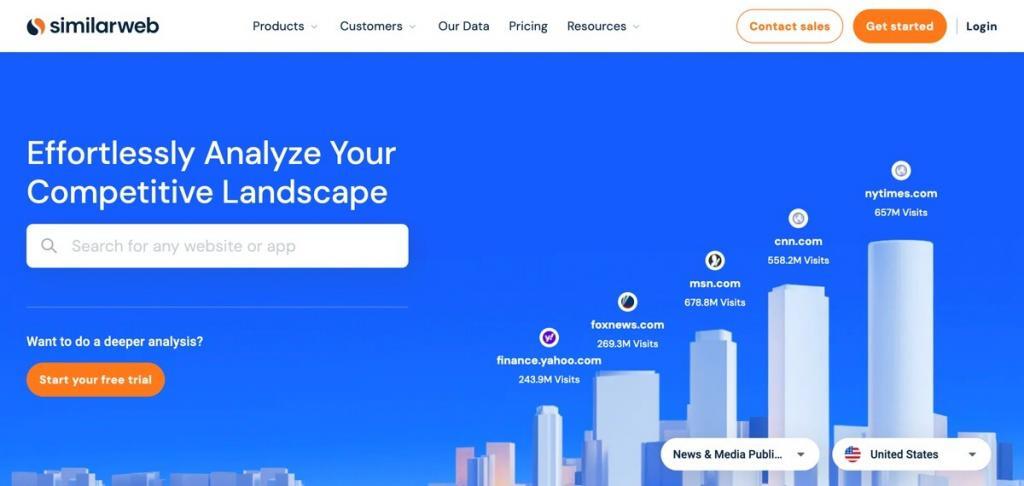
With almost 2 billion websites on the internet, it’s no surprise that the web is a heavily competitive landscape. It’s hard to think about how to get your audience’s attention when there are literally millions of other people out there trying to do the same.
But knowing about your competitors can help you strategize your content marketing plan. SimilarWeb can help you get analytics and activity about your competitors’ sites, offering information from their monthly website traffic to their best SEO keywords. You can even find referral pages and websites that help your competitor gain traffic.
SimilarWeb also offers a side-by-side comparison of your website and your competitor’s. You can get started with a free trial, but to access their full range of features you would need to talk to one of their representatives to get a custom quote for your company.
3. MixKit

A lot of businesses underrate the value of video content. It’s a versatile format that allows you to connect with users across several mediums, such as your website, emails, ads and social media. Videos are entertaining and easy to digest, making them a great tool for content marketing. In fact, it is estimated that people will spend around 100 minutes a day watching videos in 2021.
And while many small businesses understandably don’t want to spend a lot of time and money producing videos, that doesn’t mean video marketing is out of their reach. One website that can help you produce high quality videos is MixKit.
MixKit is a library of HD stock videos, stock music, sound effects and video templates, offering a wide variety of topics and themes. If you don’t want to hire a videographer or buy a camera, MixKit is a great alternative to make videos quickly and easily – and put videos at the center of your content strategy.
4. Question DB
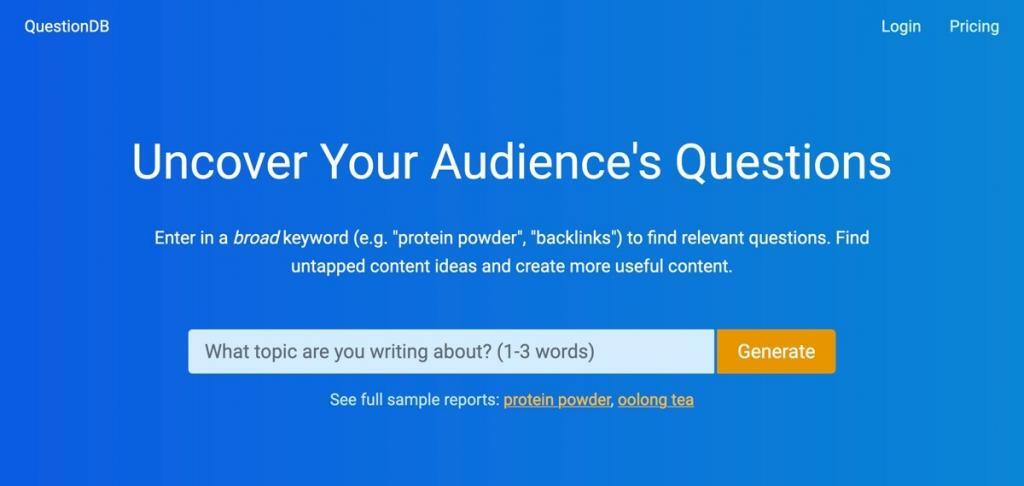
Having a blog is one of the best ways to connect with your audience while at the same time introducing them to your product. It’s a great medium to give them helpful tips, talk about their interests, share product updates, and highlight features that can solve their pain points.
Written content can also help get more attention to your website and product by increasing your online exposure, but it can be hard to find topics and create a consistent blogging schedule for your website.
Question DB is a great tool that helps you find dozens of blog posts ideas. All you have to do is enter a topic on Question DB and they will run it through their system. The online tool will then retrieve questions that people have asked regarding a topic. You can also sort these results based on frequency or popularity.
5. HubSpot
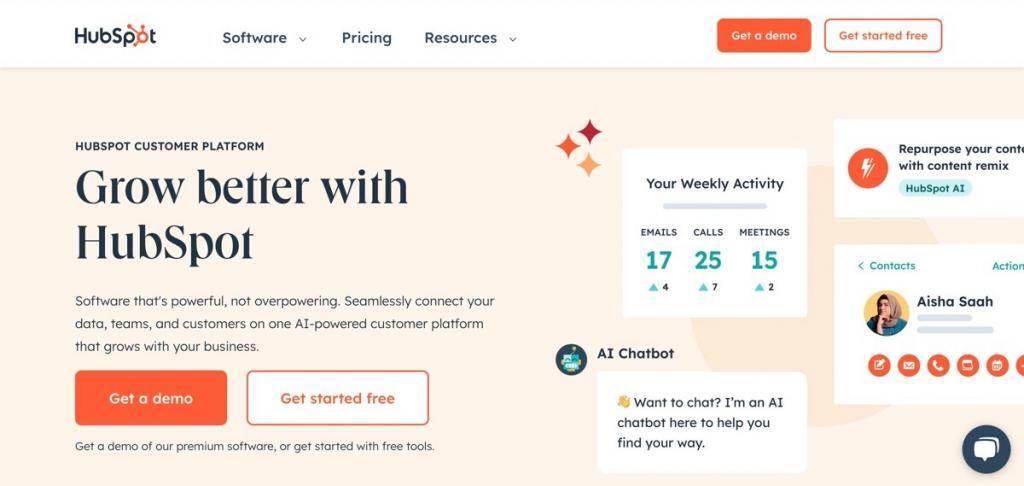
HubSpot is a great all-round tool for companies of all sizes. With a powerful and user-friendly CRM and Hubs made for the specific needs of each of your teams, HubSpot’s extensive feature set and ease of use make it a favorite among more than 90,000 users.
For your overall marketing strategy, HubSpot’s Marketing Hub helps you organize your efforts on blogging, social media, ads, landing pages and more, aiming to help you attract a wider audience and maximize your conversion rates.
In addition, HubSpot’s CMS Hub helps you manage your website content. It’s built with both web developers and marketers in mind to streamline the creation, maintenance and optimization of your website.
6. Trello
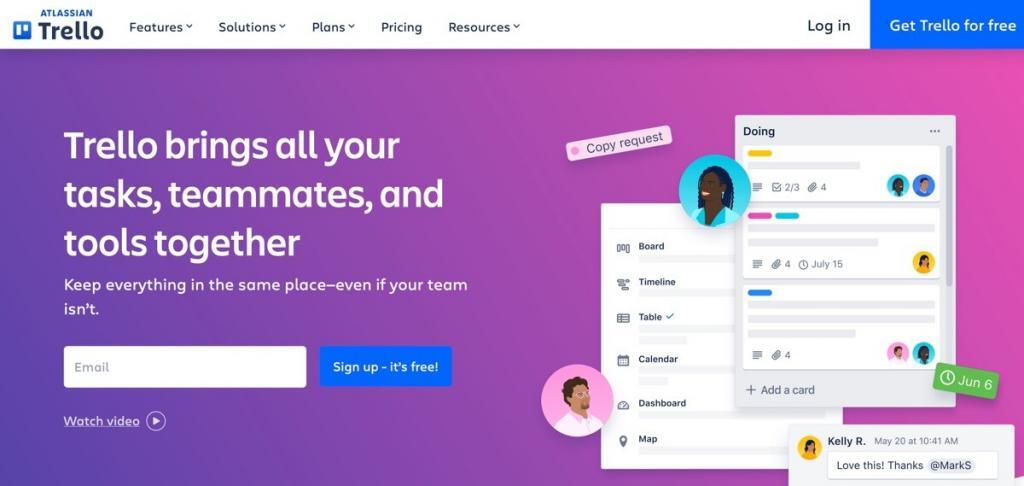
Trello is a popular online tool that helps businesses organize and manage projects with ease and transparency, as well as increasing collaboration between team members.
You can get set up with a standard Trello board in minutes, organizing your tasks in different lists and adding due dates, assigned people and labels.
With Trello’s Power-up feature, you can easily integrate your business’s other tools with your board for a bigger productivity boost, including Google Drive, Slack and Dropbox.
You can also use Trello’s virtual assistant Butler to trigger automatic actions on your cards, such as assigning the right colleague for a task or adding comments and labels based on rules.
7. Google Analytics
You’ve created a great content strategy, launched a great website and are blogging regularly. But how do you know if it’s really working?
If you want to keep track of data such as conversion rates, website visitors, clicks and SEO performance of your website – and you absolutely should – getting an analytics tool such as Google Analytics is essential to track your website’s growth.
Google Analytics provides valuable data about how visitors are interacting with your website, such as traffic, session duration, bounce rate, conversions, and more. By keeping an eye on your data, you’ll be on the right track to adjust and pivot your content marketing strategy to make sure it works.
8. PathFactory
If your business focuses on B2B marketing, PathFactory can be a great addition to your tech stack. PathFactory uses AI to give content insight, helping businesses deliver unique and tailored content for their customers.
Some of its most useful features include personalizing content for each customer, as well as helping managers identify which channels and content have the best performance.
9. Canva
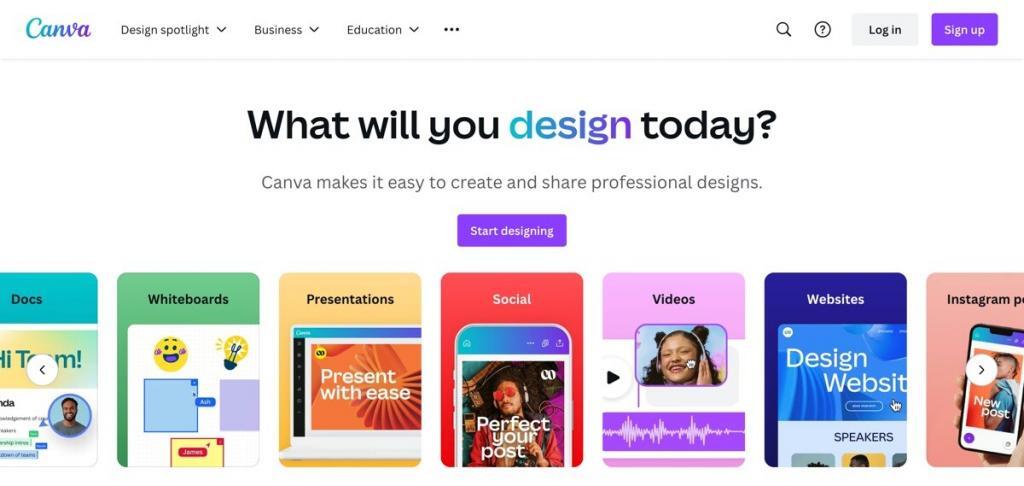
You don’t need a dedicated graphic design team to create compelling visual assets. With a tool like Canva, anyone can make beautiful creatives ranging from social media posts to infographics, brochures and even videos.
Canva offers hundreds of templates to help you create customized images that fit your company’s brand and image perfectly in minutes. You can add shapes, animated videos, stock photos, backgrounds, text, and more with a simple drag-and-drop interface.
Canva is especially useful if your time and budget for graphic design is limited, but it’s also beloved by professional designers worldwide due to its ease of use and huge library of assets.
10. Grammarly
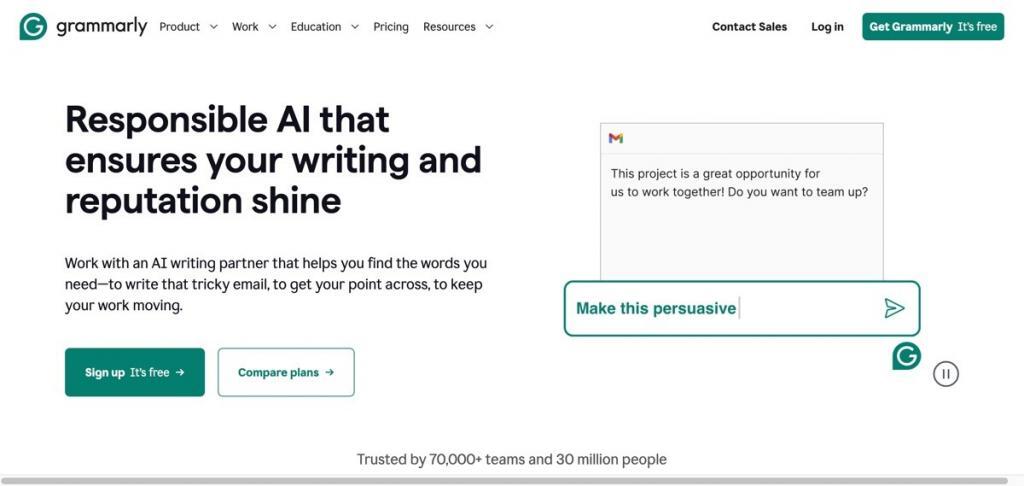
Written content is probably a huge part of your marketing strategy, so it’s essential to make sure it’s correct and well-written – after all, bad grammar can reflect badly on your brand.
Grammarly is a great tool for content writers to check their grammar, spelling, vocabulary, punctuation mistakes and more. It not only helps with the writing process, but cuts down on manual editing and proofreading time too.
With the free Chrome extension, the tool can proofread anything you write from blog articles to social media posts and emails. If you want to take it a step further, Grammarly also offers a paid version of the product that performs advanced writing checks, including a plagiarism checker and analyzing a document’s readability.
11. Buffer
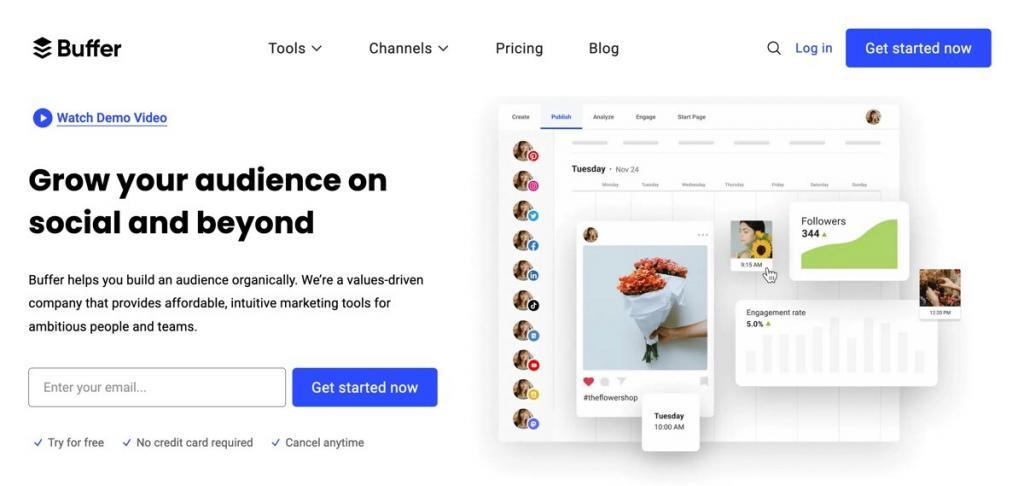
Social media is essential to your content marketing strategy. It can help you build a connection with your audience, establish your brand and give you an extra channel to promote your content.
However, managing social media can take up a lot of valuable time. That’s where Buffer comes in: this social media scheduling tool automates the posting process in Facebook, Twitter, LinkedIn and Instagram. You can create time slots to post on each platform every day and create a queue that allows you to schedule posts for months in advance.
You can also create campaigns across all platforms and follow their performance, as well as check important data from individual posts, such as click-through rates, views and reach. Keeping an eye on this data will help you fine-tune your social media strategy so that it has the widest possible reach.
12. Mailchimp
Email marketing is one of the best ways to reach out to your audience directly and make sure they’re engaging with your content via newsletters, blog digests and personalized content recommendations. That’s why it’s so important to make sure your email marketing efforts are aligned with your content strategy.
As the gold standard for email marketing software, Mailchimp is a user-friendly and powerful tool to help you maximize the power of your email marketing campaigns. Mailchimp has recently expanded its functionalities to become an all-in-one marketing tool, with features such as drag-and-drop email templates, a huge integration library, and extensive analytics and reporting capabilities, giving you great insight into how your audience is engaging with your content via email.
13. Brevo
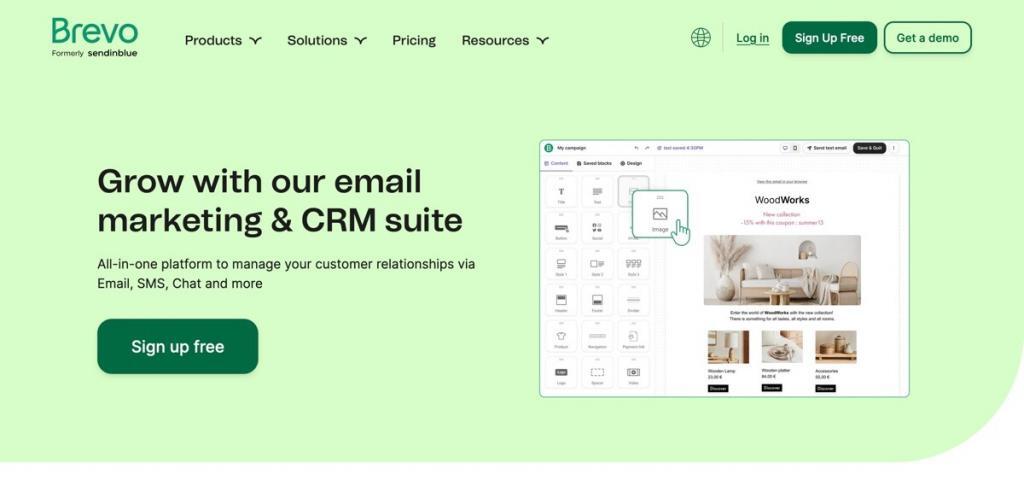
Brevo is another great tool for email campaigns. It helps you create personalized newsletters and emails using a drag-and-drop system. With this interface, you can create beautiful templates even without any coding experience.
Brevo’s standout features include customizable dashboards, easy list management and segmentation, automation workflows, and multilingual customer support.
14. Ahrefs
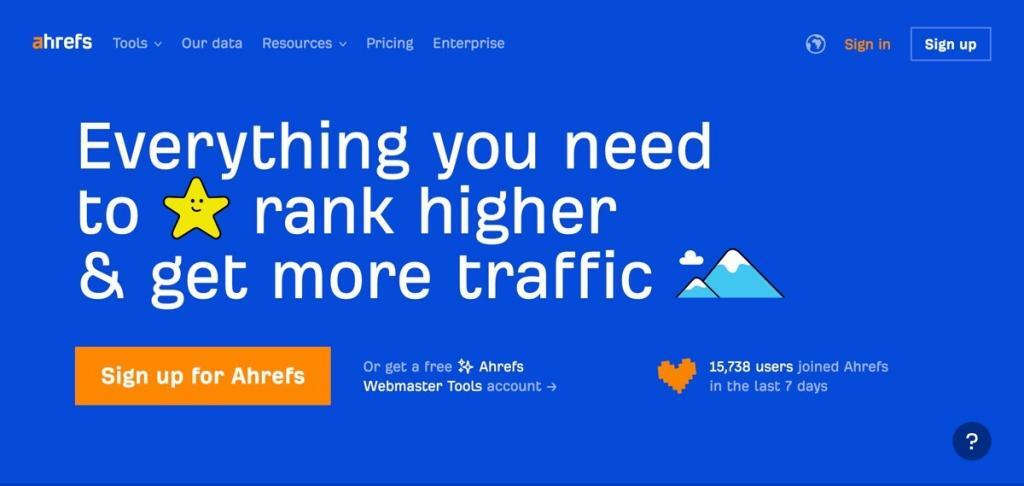
Another great way to make sure your content is reaching as many people as possible is by beefing up your SEO efforts. One of the handiest – and most widely used tools – for this is Ahrefs.
Ahrefs is a great online tool for backlink analysis, link building and keyword research. It also offers other features such as a site audit to optimize your website, competitor analysis and a rank tracker to rank your website’s ranking progress on search engines.
15. SEMrush
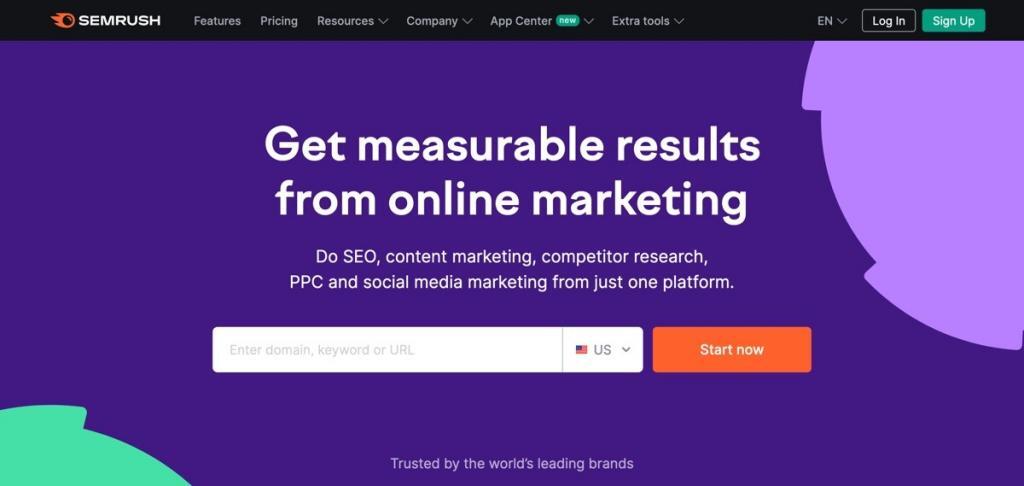

SEMrush is another option for a great SEO tool to optimize your content’s online exposure. This all-in-one SEO tool helps you track content ranking and keywords, as well as offering other services like checking backlinks and analyzing competing websites.
SEMrush also offers features to improve your PPC efforts, social media, and even content creation. It can help you monitor competitors’ ad copies and landing pages, find keywords for PPC campaigns, create and manage social media ads, manage social media campaigns, manage your editorial plan for your web content, and much more.
16. Clearscope
At the root of every great content strategy there’s a common denominator: the content itself needs to be good. For content optimization, you may consider implementing a tool like Clearscope.
Clearscope helps marketers understand how to create content that is highly relevant to their audiences, combining advanced SEO practices with readability and content relevance to produce great content that still ranks well on search engines.
